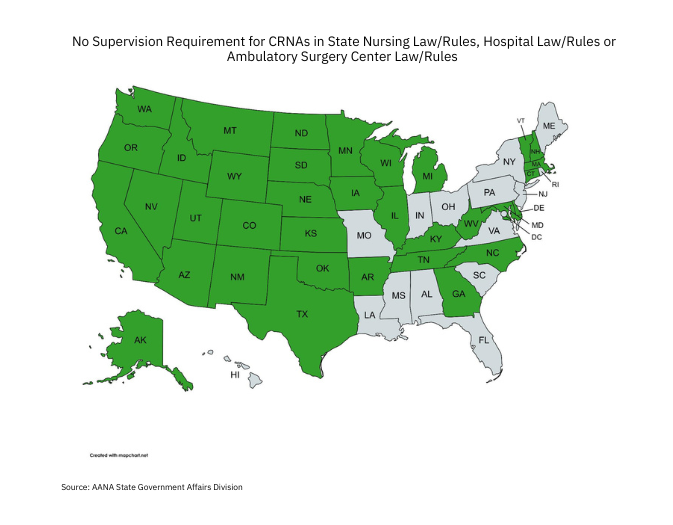The Issues
Please Take the Time to Submit These Important Letters to Support the CRNA Profession!
In Just a Few Clicks You Can Send Them All!
OPPOSE SB 1142/HB 721!
Letter 1 – Let Our Legislators Know This is NOT Good Legislation!
FANA has composed the two letters below opposing SB 1142/HB 721, please send them both! Urgently write to oppose this bill! We need everyone on this effort – share with your colleagues!
OPPOSE SB 1142/HB 721!
Letter 2 – Write Your Legislators Today!
SB 1142, Prohibited Acts by Health Care Practitioners was voted on and passed in the Senate Subcommittee on Health and Human Services April 8. Urgently write to oppose this bill! We need everyone – share with your colleagues!
ARKANSAS BECOMES 42ND STATE TO REMOVE PHYSICIAN SUPERVISION OF CRNAS!
Tell Legislators It Is Time for Florida to Stop Being Last!!
Click “Take Action” Below and Contact Your Legislators Today! Urge Them to Hear HB 111/SB 424.
Restricting CRNA Practice Reduces Access to Care and Increases Costs
Restricting CRNA practice is contrary to the national trend toward allowing APRNs to practice to the full extent of their education and training.
Allowing CRNAs to practice to the full extent of their training and education improves your access to high quality, cost-effective care, and decreases your healthcare costs. Unnecessary restrictions on CRNA practice are not cost-effective and actually increase healthcare costs. Further, imposing such restrictions on CRNA practice is not supported by published research.

Supervision Requirements
In 35 states, there is no Supervision Requirement for CRNAs in State Nursing Law/Rules, Hospital Law/Rules, or Ambulatory Surgery Center Law/Rules.
In 44 states, the nursing laws/rules do not require physician supervision of CRNAs.
Essential Access to Anesthesia Care
Research shows that CRNAs are the most cost-effective anesthesia providers and that there is no difference in safety between CRNAs and anesthesiologists. CRNAs provide essential access to anesthesia care, especially in rural and other medically underserved areas in our state and the rest of the United States.

